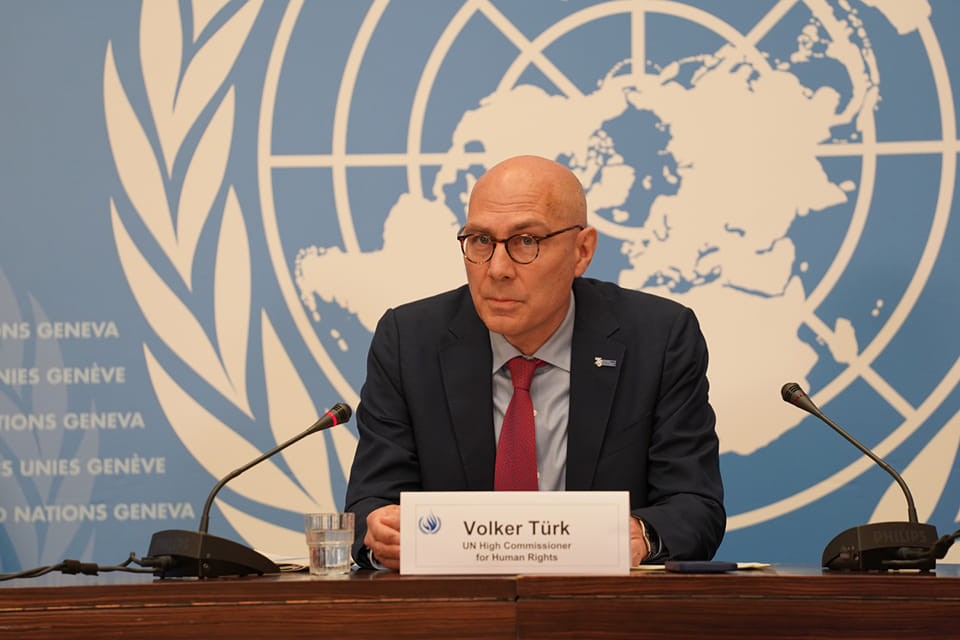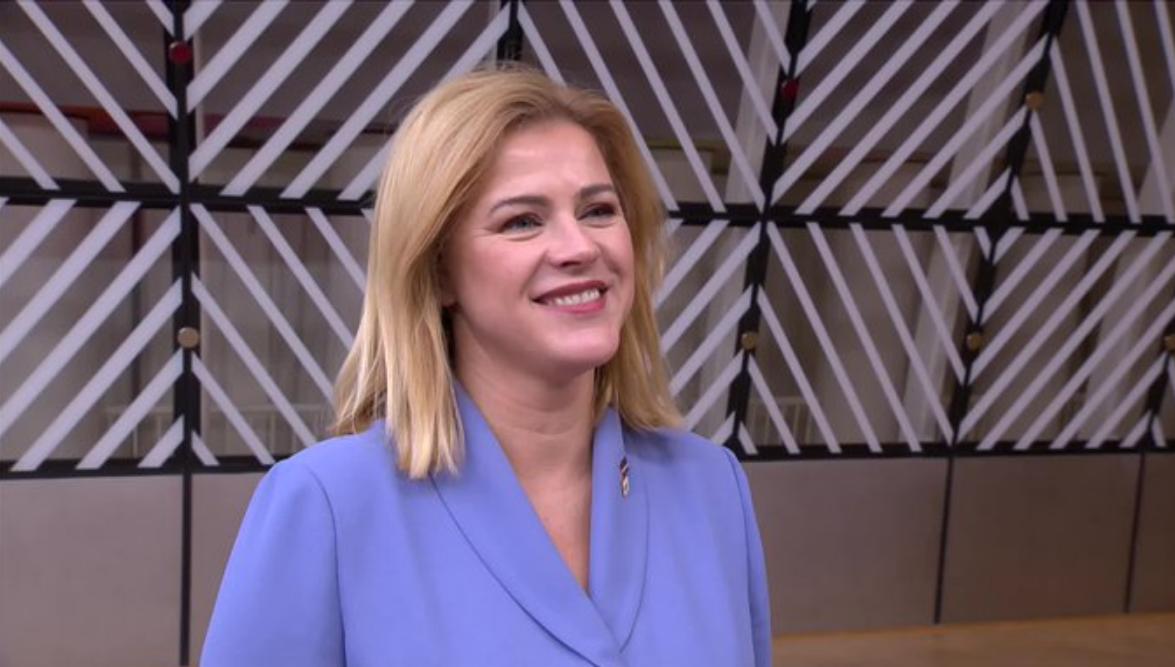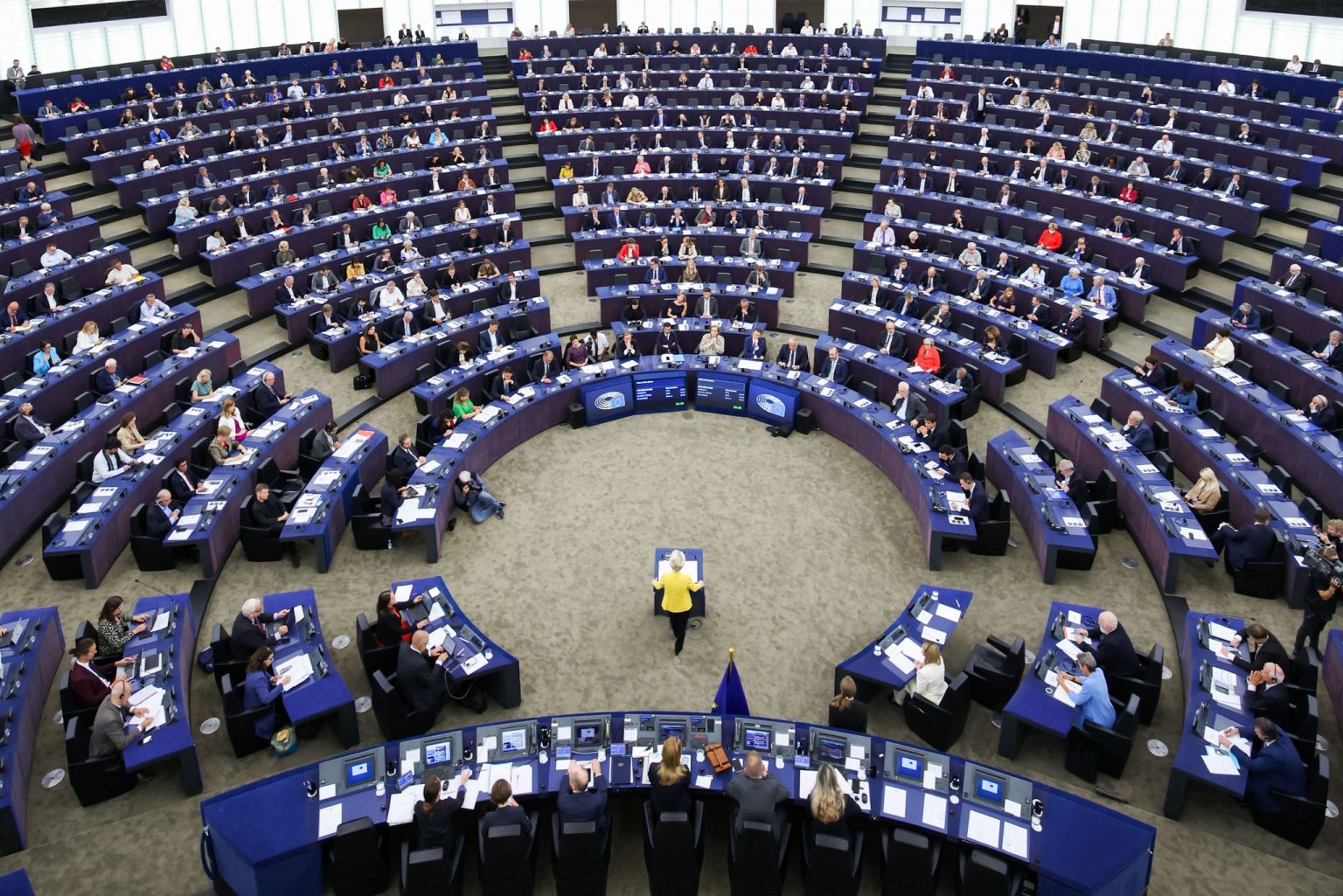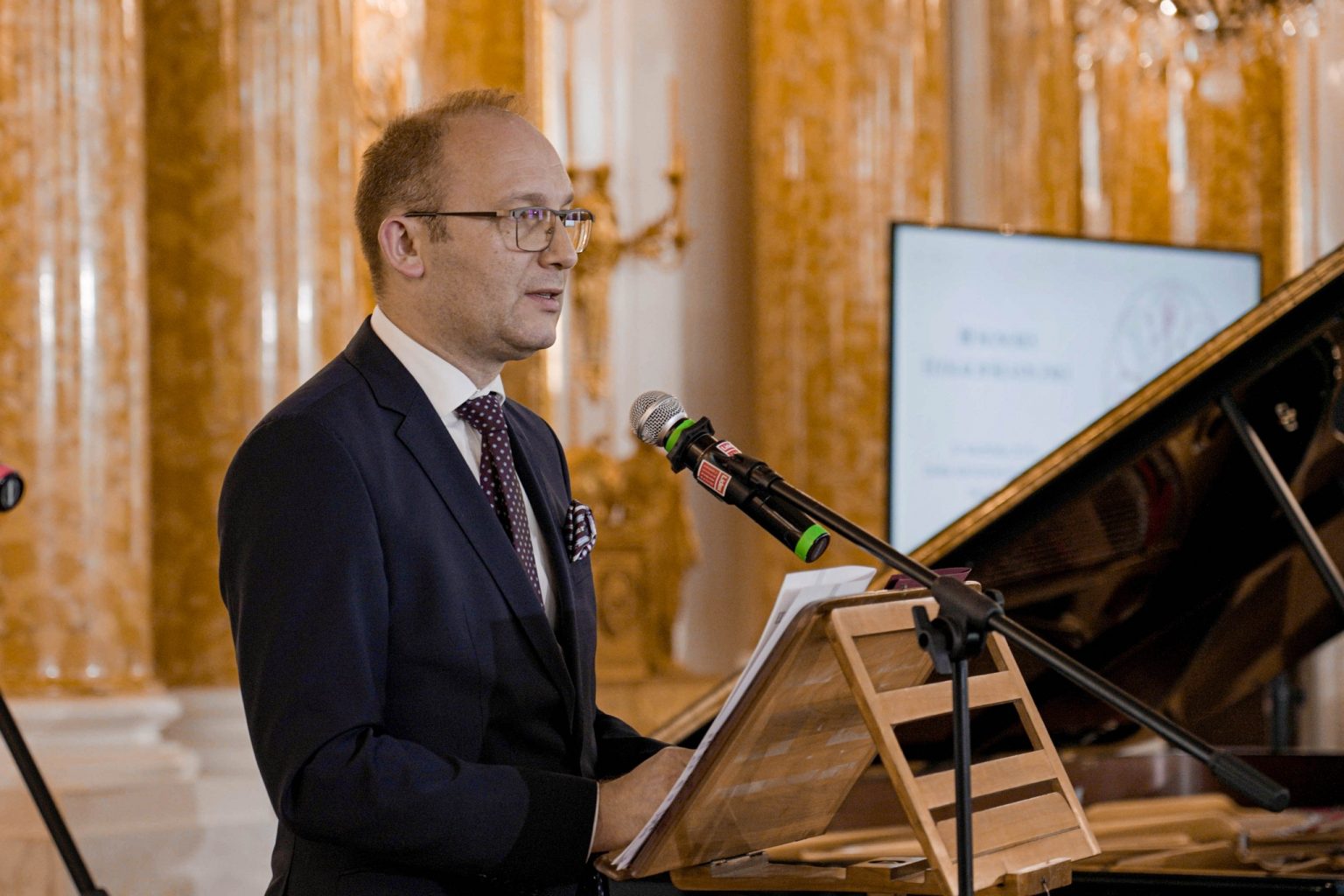World
Out in the World: LGBTQ news from Europe and Asia
United Nations Human Rights Committee raised concerns over LGBTQ rights in US

United Nations

In its review of the U.S.’ record on civil and political rights released earlier this month, the United Nations Human Rights Committee condemned a flood of discriminatory state legislation restricting the human rights of LGBTQ
The committee’s summary was first reported on by Human Rights Watch.
“The United States ratified the International Covenant on Civil and Political Rights (ICCPR) in 1992. Every four years, the HRC reviews laws and policies in countries that have ratified the treaty to evaluate where they are in compliance with the treaty and where they fall short. The review of the US was postponed during the COVID-19 pandemic, making this the first review of the US in nine years.
Among the worrying U.S. laws are those restricting access to gender-affirming care and prohibiting transgender children from participating in school sports or using bathrooms consistent with their gender identity. Also concerning are laws banning books as well as prohibiting classroom instruction on sexual orientation or gender identity, LGBT people and their families in schools.
In its concluding observations, the committee expressed concern about laws limiting transgender people’s access to healthcare, athletics and public accommodations, and restricting discussions of race, slavery, sexual orientation and gender identity in schools. It underscored the prevalence of discrimination against LGBT people in the U.S., including in housing, employment, correctional facilities and other domains.
The committee also condemned derogatory speech aimed at LGBT people, including from public officials, and violence against LGBT people and members of other minority groups.”
Russia

TNT Music, which is owned by parent company Fonbet, the largest sports betting company operating in Russia and Kazakhstan, altered a video of the South Korean K-Pop boy band Seventeen’s hit song “God of Music” that showed a rainbow.
TNT Music transformed the rainbow featured in the original video into a gray cloud.
According to the English-language Russian news outlet the Moscow Times, TNT Music appears to have erred on the side of caution after a Moscow court fined its owner Fonbet TV 1 million rubles ($10,800) in July for violating the country’s draconian “LGBT propaganda law” when it aired Finnish singer Alma’s music video for the song “Summer Really Hurt Us.”
In a March 2019 article in British publication Gay Times, Alma confirmed she is a lesbian and in a relationship with Finnish poet and human rights activist Natalia Kallio.
The channel faces another fine of up to 16 million rubles ($174,000) on four administrative charges of spreading “LGBT propaganda” among minors, according to Russian state media.
The Russian Federal Service for Supervision of Communications, Information Technology and Mass Media, abbreviated as Roskomnadzor, has been directed to ban any websites that contain information about LGBTQ identities or anything that could be construed as promoting LGBTQ related materials.
According to the Moscow Times, there was fear that the rainbow and an all-boy band would provoke Roskomnadzor into fining TNT again.
Latvia

In a Nov. 9 vote, Parliament voted to allow same-sex couples to establish civil unions-partnerships, which gives same-sex couples in this Baltic state legal recognition, but fewer rights than married couples.
The country’s Prime Minister, Evika Siliņa, issued a statement applauding the actions by lawmakers.
“This is a good day. Society has taken an important step in creating a modern and humane Latvia. With the Saeima supporting the introduction of registered partnerships, the state has fulfilled its legal obligations and given a clear signal that all families are important. Thanks for the intelligent vote!” the prime minister said.
The action by Latvia’s Parliament comes five months after lawmakers in Estonia approved a law that extended marriage rights to same-sex couples in that Baltic nation. However, while the new law allows hospital visiting rights, as well as some tax and social security benefits, the law falls short in other critical areas say LGBTQ rights activists.
Speaking with Reuters, Kaspars Zalitis, a gay rights activist, noted same-sex couples would still not be able to adopt children and would continue to face inheritance issues.
“This is a great beginning … Latvia is not one of the six countries in the European Union that have no recognition for same-sex couples,” he said.
European Union

A new global call for civil society organizations projects with a projected total budget of 36 million euros ($38.47 million) under a expanded program on Human Rights and Democracy (part of NDICI/Neighborhood, Development and International Cooperation Instrument – Global Europe) was announced on Nov. 7.
The present Global Call for Proposals targets:
- “Fair, Accountable and Inclusive Trade and Business – Flagship Action on Business and Human Rights, Forced and Child Labour and Indigenous Peoples’ Rights;”
- Global, regional or multi-country projects targeting high-risk sectors, value or supply chains that will contribute to the accompanying measures of the upcoming Corporate Sustainable Due Diligence Directive and Forced Labor Regulation.
- CSOs will be better equipped to monitor, report, access remedies, partner with the private sector and/or social partners and advocate for the implementation of relevant EU and international human rights principles and legislations. Projects financed will contribute to the sustainable implementation of the Global Gateway Strategy by reinforcing relevant social and environmental standards.
- “Global actions on human dignity, non-discrimination and inclusion;”
- Projects will promote equality, inclusion and respect for LGBTQ+ persons at global, regional or national level and more specifically in Sub-Saharan countries where consensual same-sex sexual acts between adults in private are criminalised. Priorities will include advocacy for anti-discrimination laws, support to social inclusion and empowerment of CSOs working on LGBTIQ rights.
- Promote Freedom of Religion or Belief, and prevent and combat discrimination, intolerance and violence on grounds of religion or belief through regional projects. Under this lot, intersectionality between freedom of religion or belief and gender issues is encouraged.
Projects will be global, multi-country or regional. The lead applicants should be international organizations given the size of the grants and geographic scope, with at least one local co-applicant and mandatory financial support to local organizations.
France

Attorneys representing Groupe des familles LGBT filed a criminal complaint against Seattle-based Amazon Prime for replay of the Sept. 24 soccer match between teams Paris Saint-Germain and Marseille, where homophobic chants were clearly audible.
According to the French English-language news outlet Le Monde, During the match between the bitter rivals, thousands of Paris Saint-Germain supporters chanted homophobic slogans referring to their opponents. An Agence France-Presse reporter covering the game said the chanting in PSG’s Parc des Princes stadium went on for around 10 minutes.
Four PSG players, including Randal Kolo Muani and Ousmane Dembélé, were given suspended one-match bans for also chanting insults directed at the Marseille players while celebrating their 4-0 thrashing of their opponents.
In the legal complaint filed, Groupe des familles LGBT noted that under the French criminal code, that while broadcasters are not responsible for offensive content that may occur during a live match they are liable for content offered on replay.
The complaint says that during the replay, “you can hear several chants from fans coming from the stands, some of which are distinctly homophobic in nature.” Two other LGBT rights groups, Mousse and Stop Homophobie, have said they will also join the complaint against Amazon for public insults and incitement to hatred or violence against people based on their sexual orientation.
An Amazon spokesperson told AFP the match was no longer available on Prime Video at the time the complaint was announced and that, as a broadcaster, it did not condone the comments or behavior of certain fans.
“Homophobia has no place in sport or in society, and we condemn it, like all forms of discrimination, in the strongest possible terms,” the spokesperson said.
Poland

In March 2019, local elected officials of the Polish conservative Law and Justice (PiS) party passed a regional government resolution backed by Radosław Brzózka, who led a vocal and vitriolic anti-LGBTQ campaign. Brzózka, is now chief of staff to Education Minister Przemysław Czarnek, who labeled LGBTQ people, “deviants who do not have the same rights as normal people.”
Earlier this month after the threat of pulling 3.6 million Polish zloty ($867,955) in funding by the European Union the local council rescinded the 2019 resolution.
According to the Polish investigative journalism media outlet OKO.press, in Świdnik, Jakub Osina, a local elected official announced that the resolution has now been repealed and replaced with one that makes no mention of LGBTQ issues but pledges to protect “the moral development of the young generation and the institution of the family based on Christian values.”
In September 2021, the executive branch of the EU, the European Commission, sent letters out to the governors of five of Poland’s provinces warning that pandemic relief funds totaling over 126 million euros ($150 million) will be withheld over anti-LGBTQ measures passed in their jurisdictions.
Poland has seen a resurgence in the past three years of rightwing religious ultra-conservative groups backed by nationalistic extremists in this heavily Catholic country of 38 million, which have led to passage of measures to restrict pride parades and other LGBTQ-friendly events from taking place.
Proponents of these measures claim the necessity of the provinces to be “free of LGBTQ ideology” saying this is mandated by average Poles as well as by the anti-LGBTQ views of the Catholic Church.
ILGA-Europe, a Brussels based advocacy group promoting the interests of LGBTQ and intersex people, at the European level, in a statement it sent to the Washington Blade in June 2021 after the EU letter was issued, noted that both Hungary and Poland, another EU country in which lawmakers have sought to restrict LGBTQ rights in recent years are at odds with the EU position on LGBTQ people.
“For quite some time now, we’ve been informing EU ministers about systematic breaches of EU law committed by Hungary and Poland, which impact on LGBTI rights and the lives of LGBTI people,” says ILGA-Europe.
The threat of losing funds led many Polish local authorities to begin repealing the resolutions local non-profit Polish news outlet Notes from Poland reported.
Indonesia

Roughly a hundred conservative Muslims took to the streets of the Indonesian capital city protesting the upcoming concert by British rock band Coldplay on Tuesday at Jakarta’s Gelora Bung Karno stadium.
The protestors are angered by the group’s support of the LGBTQ community. Coldplay’s lead singer Chris Martin has been known to wear rainbow colors and wave gay Pride flags during performances.
The Asian leg of Coldplay’s “Music Of The Spheres World Tour” has been a sell out in every major city on the tour. The AP reported that more than 70,000 tickets were scooped up in less than two hours when sales opened in May as Jakarta is one of the band’s top streaming hubs with 1.6 million fans in the city.
The Associated Press reported that demonstration was organized by Islamist group the 212 Brotherhood Alumni, whose name refers to the Dec. 2, 2016, mass protests against the polarizing Christian politician Basuki Tjahaja Purnama. The crowd chanted “God is Great” and “We reject Coldplay” as they marched to the heavily guarded British Embassy in Jakarta.
“We are here for the sake of guarding our young generation in this country from efforts that could corrupt youth,” Hery Susanto, a protester from West Java’s city of Bandung told Associated Press journalist Fadlan Syam. “As Indonesian Muslims, we have to reject the Coldplay concert.”
Novel Bamukmin, a protest coordinator, gave a speech criticizing the government for allowing the band to hold a concert in Indonesia, the world’s most populous Muslim-majority country. He said if the concert was not canceled, thousands of protesters would confront the band on its way from the airport.
“Coldplay has long been a strong supporter of LGBT and its lead singer is an atheist,” Bamukmin said, standing on the top of a truck, “We must reject their campaign, their concert here.”
Security concerns in this deeply conservative nation have previously caused other Western musical artists who support the LGBTQ community to cancel their scheduled shows.
Lady Gaga canceled her sold-out show in Indonesia in 2012 over security concerns after Muslim hard-liners threatened violence if the pop star went ahead with her “Born This Way Ball” concert.
Additional reporting by Human Rights Watch, the Moscow Times, Agence France-Presse, Le Monde, Reuters, OKO.press, the Associated Press, and the BBC.

South Africa National Assembly Speaker Thoko Didiza on June 17 swore in lesbian feminist Palomino Jama as a new MP.
Jama joins other LGBTQ legislators — including Public Works and Infrastructure Minister Dean Macpherson; Forestry, Fisheries and the Environment Minister Dion George; and Deputy Women, Youth, and Persons with Disabilities Minister, Steve Letsike.
Jama said she will work hard and excel as MP.
“What a great moment to be alive. Thank you youth of 1976, thank you Simon Nkoli, Phumi Mthetwa, Paddy Nhlaphos, Vanessa Ludwig, and others for what you did for the LGBTI people in the 80s and 90s. Lastly, for the fierce fist of the Jamas to always hit where it matters for the people of this country,” said Letsike.
Embrace Diversity Movement, a local LGBTQ organization, said Jama’s inauguration came at an appropriate time, during Pride month.
“Her swearing-in took place during a month of profound significance in June, which marks both international Pride Month and Youth Month in South Africa,” said the group. “Palomino is a seasoned queer activist and dedicated community builder with a distinguished record of leadership and service.”
“The EDM proudly supports Palomino in her deployment to parliament, her presence meaningfully advances youth and queer representation in public office,” added the Embrace Diversity Movement. “We are confident that she will serve the people of South Africa with integrity, courage, and distinction.”
South Africa is the only African country that constitutionally upholds LGBTQ rights. There are, however, still myriad challenges the LGBTQ community faces on a daily basis that range from physical attacks to online abuse.
Letsike in May faced a barrage of online attacks after she released a scathing statement against popular podcaster Macgyver “MacG” Mukwevho, who during a podcast episode in April insinuated that the reason behind popular socialite Minnie Dlamini’s “unsuccessful” relationships were probably due to the bad odor from her genitals.
Letsike, who viewed MacG’s comments as offensive, called for the podcaster to be summoned before parliament’s Portfolio Committee on Women, Youth, and Persons with Disabilities and criticized the local television station that aired the podcast.
X users and other social media subscribers bombarded Letsike with anti-lesbian comments. She, however, was unphased.
Letsike continues to face anti-lesbian comments, even though MacG apologized and the television station on which his podcast had aired cancelled its contract with him.
Israel
Activist recalls experience in Tel Aviv after Israel-Iran war began
Marty Rouse was part of Jewish Federations of North America Pride mission

A long-time activist who was in Israel last month when its war with Iran began has returned to D.C.
Marty Rouse traveled to Israel on June 6 with the Jewish Federations of North America. The 5-day mission ended the night before the annual Tel Aviv Pride parade was scheduled to take place.
Mission participants met with Israeli President Isaac Herzog and several LGBTQ activists in Tel Aviv and Jerusalem. They visited the Western Wall, the Nova Music Festival site, and Nir Oz, a kibbutz in southern Israel that is less than a mile from the country’s border with the Gaza Strip. Mission participants also visited Sderot, a city that is roughly a mile from the Hamas-controlled enclave, a veterans rehabilitation facility, a new LGBTQ health center and the Aguda: The Association for LGBTQ Equality in Israel in Tel Aviv.
Hamas militants on Oct. 7, 2023, killed upwards of 360 partygoers and kidnapped dozens more at the music festival that was taking place at a campground near Re’im, a kibbutz that is roughly 10 miles southwest of Nir Oz. The militants killed or took hostage nearly a quarter of Nir Oz’s residents. They also took control of Sderot’s police station.

Tel Aviv Deputy Mayor Chen Arieli spoke at the mission’s closing party that took place at the Sheraton Grand, a hotel that overlooks Tel Aviv’s beachfront, on June 12.
Rouse and other mission participants planned to stay in Tel Aviv for the Pride parade, which was scheduled to take place the following day. He and Gordie Nathan, another mission participant who lives in Palm Springs, Calif., had checked into a nearby hotel that was less expensive.
“We said our farewells,” recalled Rouse when he spoke with the Washington Blade in D.C. on June 24. “We went to our hotels, and we get the warning, and then all hell broke loose.”
Israel early on June 13 launched airstrikes against Iran that targeted the country’s nuclear and military facilities.
Rouse said mission organizers told him and other participants who remained in Tel Aviv to meet at the Sheraton Grand for breakfast and dinner — Israel’s airspace was closed in anticipation of an Iranian counterattack, and authorities cancelled the Pride parade.
He said he went to bomb shelters at least twice a night for three nights.
Israel’s Home Front Command during the war typically issued warnings about 10 minutes ahead of an anticipated Iranian missile attack. Sirens then sounded 90 seconds before an expected strike.
Rouse and Nathan walked to the Sheraton Grand on June 13 when the Home Front Command issued a 10-minute warning. They reached the hotel in a couple of minutes, and staff directed them to the bomb shelter.
“You know to walk slowly, everything’s fine,” recalled Rouse. “You get 10 minutes, so everything was fine when the alarm goes off.”
Rouse described the Sheraton Grand shelter as “well lit” with WiFi, a television, and air conditioning. He was watching an Israeli television station’s live coverage of the Iranian missile attack when he saw one hit an apartment building in the Tel Aviv suburb of Ramat Gan.
A 74-year-old woman died and her boyfriend was seriously injured.
“I go over to look at the TV, just to watch,” recalled Rouse. “All of a sudden, you watch, and you see one bomb go and land and explode in Tel Aviv on TV. It landed and blew up.”
“I was like, okay, this is real, and so that was scary,” he added.
Rouse said the bomb shelter in the hotel where he and Nathan were staying after the mission ended was far less comfortable.
“It was dark. It was humid. It was hot. It was very uncomfortable,” said Rouse. “You really felt alone.”

Rouse and nearly everyone else on the mission who were in Tel Aviv when the war began left Israel on June 15. They boarded buses that took them to the Jordanian capital of Amman, which is a roughly 2 1/2-hour drive from Tel Aviv through the West Bank.
Rouse described the trip as “like a field trip” until they drove across the Jordan River and arrived at the Jordanian border crossing.
“You walk into this room, and instead of being in a well air-conditioned airport, you’re in this hot, humid, small place in the middle of the desert, packed with people, and those big, large, loud fans and pictures of military people on the walls,” he said. “It was almost like a Casablanca kind of feeling.”
Rouse said Jordanian authorities brought mission participants through customs in groups of 10. A Jewish Federations of North America liaison from Amman who previously worked as a tour guide for A Wider Bridge — a group that “advocates for justice, counters LGBTQphobia, and fights antisemitism and other forms of hatred” — went “behind closed doors” to ensure everyone was able to enter the country.
“It took a really long time,” Rouse told the Blade.

Mission participants arrived in Amman a short time later. They checked into their hotel and then had dinner at a restaurant.
“Now we feel like we’re safe and we’re in Amman,” recalled Rouse. “We’re sitting outside having a beautiful dinner.”
Iranian missiles passed over Amman shortly after Rouse and the other mission participants had begun to eat their dessert. They went inside the restaurant, and waited a few minutes before they boarded busses that brought them back to their hotel.
“No one was openly freaking out, which I was surprised by,” said Rouse.
The group was scheduled to fly from Amman to Cairo at 11 p.m. local time (4 p.m. ET) on June 16. They visited Jerash, an ancient city north of Amman, before their flight left Jordan.
“[The Jerash trip] actually took our minds off of everything,” said Rouse.
A Jewish Federations of North America contact met Rouse and the other mission participants at Cairo’s airport once their flight landed. Rouse arrived at JFK Airport in New York on June 17.
Trump-announced ceasefire ended 12-day war
President Donald Trump on June 23 announced a ceasefire that ended the 12-day war.
The U.S. three days earlier launched airstrikes that struck three Iranian nuclear sites. The ceasefire took effect hours after Iran launched missiles at a U.S. military base in Qatar.
Iran said the war killed more than 900 people in the country.
The Associated Press notes Iranian missiles killed 28 people in Israel. One of them destroyed Tel Aviv’s last gay bar on June 16.
The war took place less than two years after Oct. 7.
The Israeli government says Hamas militants on Oct. 7, 2023, killed roughly 1,200 people on that day when it launched its surprise attack on the country. The militants also kidnapped more than 200 people.
The Hamas-controlled Gaza Health Ministry says Israeli forces have killed nearly 55,000 people in the enclave since Oct. 7. Karim Khan, the International Criminal Court’s chief prosecutor, has said Israeli Prime Minister Benjamin Netanyahu and former Hamas leader Yahya Sinwar, who the IDF killed last October, are among those who have committed war crimes and crimes against humanity in Gaza and Israel.

Rouse upon his return to the U.S. said he “was never as aware of the comfort of another human being than I was during that time.” Rouse affectionately called Nathan his “bomb shelter boyfriend” and even questioned the way he reacted to the missile alerts.
“He’s sitting on the edge of the bed and he goes, okay, I’m going to put on my socks and my shoes, and I say, really? You’re going to put on your socks,” Rouse told the Blade. “The fact that I was nervous, that putting on socks might have changed the direction of our lives, to me was like I can’t believe I said that to him.”
Rouse quickly added Nathan helped him remain calm.
“If I was by myself, those nights would have been long enough,” said Rouse. “It’s a totally different feeling to be with another human that you know than to be by yourself.”

Rouse also praised the Jewish Federations of North America.
“JFNA really sprung into action and started to figure out all options to get us all safely home,” said Rouse. “It was all about logistics. Staff worked around the clock identifying and then mobilizing to get us back to the states. It was a great team effort and I know I speak for everyone in expressing our deep appreciation for their dedication to getting us safely home.”
Latin America
Protests, demands for rights define Pride month in Latin America
More than 3 million people participated in São Paulo march

Activists across Latin America marked Pride month with massive demonstrations, cultural activities, and demands that their countries guarantee equality and protect LGBTQ people from violence.
From Santiago, Chile, to Mexico City, activists took to the streets to celebrate the rights that have been won and the many that are still pending.
Chile
The Pride march that the Movement for Homosexual Integration and Liberation (Movilh) and Fundación Iguales organized took place in downtown Santiago, the country’s capital, on June 22. Authorities and the two organizations say more than 120,000 people participated.
Under the slogan “Pride with memory and hope,” marchers demanded lawmakers approve a bill that would allow reparations for LGBTQ Chileans who Gen. Augusto Pinochet’s dictatorship targeted. There were also calls for the government to promote an LGBTQ-inclusive educational reform.
“This time we are marching on high alert,” said Movilh spokesperson Javiera Zúñiga. “For the first time in decades, we are losing achieved rights. We demand the state wake up. The reform of the Zamudio Law has been stalled for 13 years.”
Marches also took place in Valparaíso, Antofagasta, Temuco, and Concepción, highlighting the growing visibility of transgender groups and feminist organizations.
Mexico
Mexico City on June 29 was the epicenter of one of the region’s largest Pride marches.
More than 300,000 people participated in the march. Comité IncluyeT organized the 46th annual march under the slogan “Not one step back: rights are respected.”
Several organizations denounced the increase in hate crimes — Mexico’s National Observatory of Hate Crimes notes more than 80 LGBTQ people have been reported murdered in the last year. They also urged Mexican lawmakers to criminalize transfeminicides across the country.
Argentina
Although Buenos Aires’s official Pride march takes place in November, the Argentine LGBT+ Federation and other groups in the Argentine capital and in other cities across the country in June organized activities.
More than 5,000 people on June 24 marched from Plaza de Mayo to the Argentine Congress to reject the government’s dismantling of public policies. President Javier Milei’s decision to eliminate the country’s Women, Gender, and Diversity Ministry and cut sexual health programs were among the moves the protesters denounced.
“Today Pride is also resistance to the adjustment,” pointed out Comunidad Homosexual Argentina, an LGBTQ advocacy group.

Colombia
Thousands of people in Bogotá, the Colombian capital, and the cities of Medellín, Cali, and Barranquilla marched on June 29.
The marchers’ slogan was “diversity is also peace,” in a context where violence against LGBTQ people remains high. Caribe Afirmativo, a Colombian LGBTQ rights group, notes more than 45 people from the community has been reported killed in the country over the last 12 months, with most of them trans women.
Organizations also demanded lawmakers resume debate of a bill that would extend comprehensive protections to LGBTQ Colombians. The measure has been stalled in Congress since 2023.
Brazil
More than 3 million people participated in the 28th São Paulo LGBTQ+ Pride Parade that took place on the city’s Paulista Avenue on June 22.
The parade took place under the slogan “LGBT+ social policies: we want the whole thing, not half of it.” Organizers demanded expanded access to health care, employment, and education for the most vulnerable communities, especially Black trans people. They also denounced ultraconservative figures who seek to curtail LGBTQ rights.
Peru and Paraguay
More than 15,000 people took part in a Pride march in Lima, the Peruvian capital, on June 28. Participants demanded lawmakers approve a trans rights law, which has been stalled in the Peruvian Congress since 2016, and recognition of civil unions.
Members of SomosGay, a Paraguayan LGBTQ rights group, and other organizations participated in a Pride march that took place in Asunción, the country’s capital, on June 29.
The march took place without incident, despite threats and anti-LGBTQ hate speech on social media. Participants demanded an end to anti-LGBTQ discrimination and rhetoric from social and religious groups.
Central America
Upwards of 2,000 people participated in a Pride march in Tegucigalpa, the Honduran capital, on June 22. A Pride demonstration took place in San Salvador, the capital of neighboring El Salvador, on June 28.
-

 U.S. Supreme Court3 days ago
U.S. Supreme Court3 days agoSupreme Court to consider bans on trans athletes in school sports
-

 Out & About3 days ago
Out & About3 days agoCelebrate the Fourth of July the gay way!
-

 Virginia3 days ago
Virginia3 days agoVa. court allows conversion therapy despite law banning it
-

 Federal Government5 days ago
Federal Government5 days agoUPenn erases Lia Thomas’s records as part of settlement with White House












